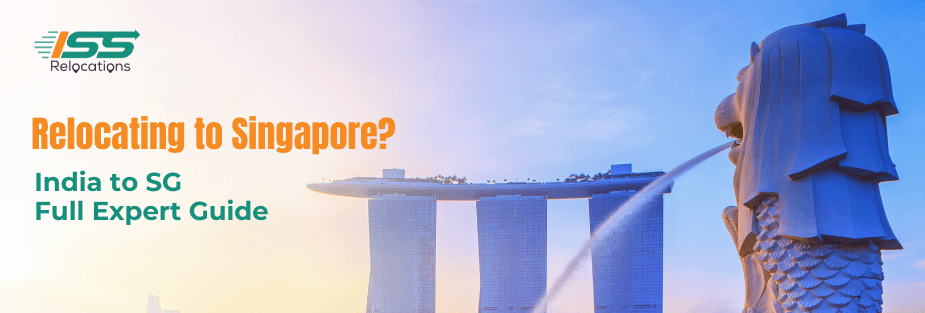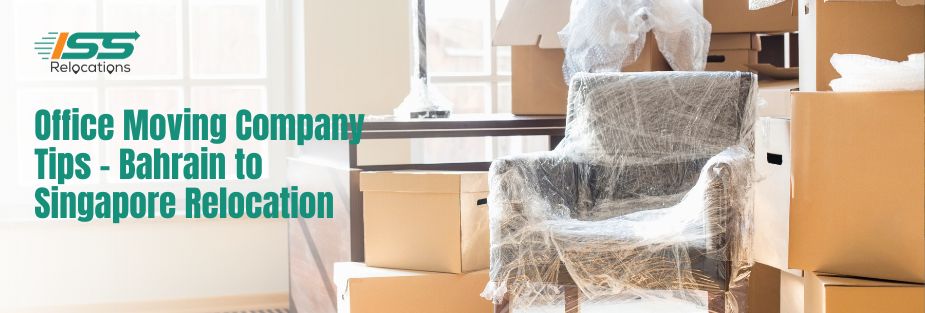
Top 10 Things to Know Before Moving to South Africa
Are you planning to move to South Africa? If yes, don’t miss some important things to know before Moving to South Africa. South Africa, known for its breathtaking landscapes, vibrant culture, and diverse communities, is an increasingly popular destination for expatriates. Whether career opportunities draw you, the allure of a warmer climate, or the chance to explore new cultural experiences, moving to South Africa can be a life-changing adventure. The process, however, can be complex and overwhelming. This is where ISS Relocations comes in, offering expert guidance and comprehensive services to ensure a seamless transition. Let’s delve into the top 10 things you need to know before making this significant move.
Things to Know Before Moving to South Africa
Why Move to South Africa?
Moving to South Africa offers a multitude of benefits that can significantly enhance your quality of life. One of the most compelling reasons to move is the country’s stunning natural beauty. From the iconic Table Mountain in Cape Town to the sprawling savannas of Kruger National Park, South Africa boasts a variety of breathtaking landscapes. Additionally, the country is known for its vibrant cultural scene, with a rich history and diverse population that contributes to a dynamic and inclusive society.
The economic opportunities in South Africa are also noteworthy. As one of the most developed countries on the African continent, South Africa has a robust economy with thriving industries in finance, technology, and natural resources. This economic diversity can provide numerous career opportunities for expatriates. Moreover, the cost of living in South Africa can be relatively affordable compared to many Western countries, allowing for a comfortable lifestyle.
Another benefit of moving to South Africa is the lifestyle. The country offers a wealth of outdoor activities, from hiking and surfing to wildlife safaris and wine-tasting tours. The warm climate and beautiful scenery make it an ideal place for those who enjoy an active and outdoor lifestyle. Additionally, the local communities are known for their hospitality and friendliness, making it easier for newcomers to feel at home.
Potential Challenges for Moving to South Africa
While moving to South Africa can be an exciting adventure, it is important to be aware of potential challenges. One of the primary concerns for expatriates is safety. South Africa has higher crime rates compared to many other countries, and it is crucial to take precautions to ensure personal safety. This includes being vigilant, avoiding certain areas, and securing your home. Fortunately, many resources and communities can guide staying safe.
Adjusting to the local infrastructure can also be a challenge. While major cities like Johannesburg, Cape Town, and Durban have well-developed infrastructure, there can be issues with electricity, water supply, and public transportation. Power outages, known as load shedding, are common, and it is important to be prepared for these occurrences. Investing in backup power sources and water storage solutions can help mitigate these inconveniences.
Navigating the bureaucracy in South Africa can be another hurdle. The process of obtaining visas, work permits, and other necessary documentation can be complex and time-consuming. It is essential to start this process early and to be prepared for potential delays. ISS Relocations can provide valuable assistance in navigating these bureaucratic challenges, ensuring that all necessary paperwork is completed correctly and efficiently.
Read Also: 10 Things You Should Know Before Moving to USA from UAE in 2025
Navigating the Visa Process
Understanding and navigating the visa process is a critical step when moving to South Africa. There are several types of visas available, depending on the purpose and duration of your stay. The most common visa categories for expatriates include work visas, business visas, and residency permits.
Work visas are essential for those moving to South Africa for employment purposes. There are different types of work visas, such as the General Work Visa, Critical Skills Work Visa, and Intra-company Transfer Visa. Each type has specific requirements and documentation, such as proof of employment, qualifications, and health clearance. It is crucial to ensure that all paperwork is complete and submitted in a timely manner to avoid any delays.
Business visas are available for entrepreneurs and investors looking to start or invest in a business in South Africa. This visa requires a detailed business plan, proof of financial investment, and other supporting documents. The application process can be complex, but with the right guidance, it can be managed effectively.
Residency permits are available for those who wish to live in South Africa on a long-term basis. This can be based on various criteria, such as spousal relationships, retirement, or financial independence. The process involves thorough background checks and documentation, making it essential to be well-prepared.
Language Considerations
Language can be a significant factor when moving to South Africa. The country has 11 official languages, with English being the most widely spoken and used in business and government. This makes it relatively easy for English-speaking expatriates to settle in and communicate effectively. Unlike other countries where French might be necessary, in South Africa, knowing English is sufficient. While learning local languages like Afrikaans, Zulu, or Xhosa can enrich your experience, it is not mandatory for daily living.
Understanding the local language nuances can help in social integration and enhance your overall experience. It can also be beneficial in understanding local customs and traditions better. Moreover, knowing some basic phrases in a local language can endear you to the locals and show respect for their culture. However, rest assured that moving to South Africa with English as your primary language will not pose any significant difficulties.
Prepare for Your Move Today!
Begin Your Stress-Free Relocation Journey Today – Request A Quote Now!
Living Costs and Financial Planning
A crucial aspect of moving to South Africa is understanding the living costs and planning your finances accordingly. The cost of living in South Africa varies depending on the city and your lifestyle. Major cities like Johannesburg, Cape Town, and Durban tend to have higher living costs compared to smaller towns. However, overall, South Africa offers a relatively affordable cost of living compared to many Western countries.
Housing is one of the significant expenses. Renting a property in urban areas can be costly, but there are options to suit different budgets. Groceries, transportation, and utilities are generally affordable, although prices can fluctuate. Public transportation is available but may not be as reliable as in some other countries, so owning a car might be necessary for convenience and safety.
Financial planning is essential when moving to South Africa. It is advisable to open a local bank account to manage your finances effectively. This can help with currency exchange rates and facilitate transactions. Additionally, it is important to be aware of the tax regulations and ensure compliance to avoid any legal issues. Proper financial planning can make your transition smoother and more comfortable.
Housing Options
Finding the right housing is a crucial step in your relocation process. South Africa offers a variety of housing options, from apartments in bustling city centers to serene suburban homes. Popular expat neighborhoods in Johannesburg include Sandton, known for its luxury apartments and proximity to business districts, and Fourways, which offers a suburban feel with modern amenities. In Cape Town, areas like Camps Bay and Sea Point are favored for their stunning views and vibrant lifestyle.
When moving to South Africa, you can choose between renting and buying property. Renting is a common choice for expatriates, especially when they first arrive. It provides flexibility and the opportunity to explore different areas before making a long-term commitment. Rental prices can vary significantly based on location and property type. It is advisable to engage with local real estate agents who can provide insights and assist in finding suitable accommodations.
Purchasing property is an option for those looking to settle long-term. The process involves several legal steps, including obtaining a bond (mortgage) and conducting property inspections. It is essential to work with a reliable real estate agent and legal advisor to navigate the property market and ensure a smooth transaction. ISS Relocations can offer valuable assistance in finding and securing the right home for you.
Healthcare System
The healthcare system in South Africa is divided into public and private sectors. The public healthcare system is accessible but often faces challenges such as long wait times and limited resources. In contrast, the private healthcare system offers high-quality medical care with modern facilities and shorter wait times. Many expatriates opt for private healthcare to ensure they receive the best possible treatment.
When moving to South Africa, it is highly recommended to obtain private health insurance. Private health insurance can cover a wide range of medical services, including hospital stays, specialist consultations, and emergency care. It is important to research and choose a health insurance plan that suits your needs and provides adequate coverage.
ISS Relocations can assist you in understanding the healthcare options available and help you choose the right health insurance plan. Additionally, they can provide guidance on finding reputable healthcare providers and navigating the healthcare system. Having access to quality healthcare is essential for your well-being and peace of mind while living in South Africa.
Education and Schooling
When moving to South Africa, one of the key considerations for families is the education system. South Africa offers a mix of public and private schools, as well as international schools that follow globally recognized curriculums. Public schools in South Africa are government-funded and vary in quality. While some public schools offer excellent education, many expatriates prefer private or international schools for their children.
Private schools often provide higher standards of education and facilities, but they come with higher tuition fees. They offer various curriculums, including South African, British, and American systems. International schools are particularly popular among expatriates, as they offer curricula like the International Baccalaureate (IB) and the Cambridge International Examinations (CIE), which can be beneficial for children who may move to different countries in the future.
Enrolling your child in school requires planning and understanding the admission processes. Many private and international schools have waiting lists, so it is advisable to start the application process early. ISS Relocations can assist with school selection and enrollment procedures, ensuring that your children receive the best possible education as part of your move.
Cultural Integration and Lifestyle
Cultural integration is a significant part of the experience when moving to South Africa. The country is known for its rich and diverse cultural heritage, influenced by various ethnic groups and traditions. Embracing this diversity can greatly enhance your experience and help you settle in more comfortably.
South Africa’s lifestyle is vibrant and varied, with numerous opportunities for socializing, entertainment, and outdoor activities. The local cuisine is a fusion of different cultural influences, offering a wide range of flavors and dishes to explore. Participating in local events and festivals, such as the Cape Town International Jazz Festival or the National Arts Festival, can provide valuable insights into the local culture and help you connect with the community.
Understanding and respecting local customs and traditions is crucial for successful cultural integration. This includes being aware of social etiquette, such as greetings, dining manners, and holiday celebrations. Engaging with the local community, whether through volunteer work, sports, or social clubs, can help you build meaningful relationships and feel more at home.
Legal and Safety Considerations
Legal and safety considerations are paramount when moving to South Africa. It is essential to understand the legal requirements for expatriates, including registration with local authorities, obtaining a South African ID, and complying with tax regulations. Failure to adhere to these requirements can result in legal issues and penalties.
Safety is a significant concern for many expatriates moving to South Africa. While the country has a high crime rate, taking proactive measures can significantly enhance your safety. This includes living in secure neighborhoods, using home security systems, and being cautious in public places. It is also advisable to stay informed about local safety conditions and avoid high-risk areas.
Driving in South Africa requires understanding local traffic laws and obtaining a South African driver’s license if you plan to drive regularly. Road safety can vary, and it is important to practice defensive driving and be cautious, especially in unfamiliar areas. ISS Relocations can provide valuable guidance on legal and safety considerations, helping you navigate these aspects smoothly.
Wrapping Up
Moving to South Africa can be a highly rewarding experience, offering a unique blend of cultural diversity, natural beauty, and economic opportunities. By understanding the key aspects of life in South Africa, from visa processes and language considerations to housing, healthcare, and education, you can ensure a smooth transition and a fulfilling experience.
ISS Relocations is here to support you every step of the way, providing expert assistance and personalized services to make your move as seamless as possible. Whether you need help with navigating legal requirements, finding the right home, or understanding local customs, our team is dedicated to helping you settle in and thrive in your new environment.
We also offer exceptional local moving services at ISS Relocations, tailored to meet your specific needs. Our team of experienced professionals ensures a seamless and stress-free moving experience, handling everything from packing and loading to transportation and unpacking. With our comprehensive local moving services, you can trust us to treat your belongings with the utmost care and efficiency. Whether you’re moving across town or just down the street, ISS Relocations is committed to providing top-notch service and making your local move as smooth as possible.
Plan Stress-free Move with Top Moving Company in UAE - ISS Relocations

Frequently Asked Questions
What salary is needed to live comfortably in South Africa?
To live comfortably in South Africa, an individual typically needs a monthly salary of ZAR 20,000–30,000, while a family may require ZAR 40,000 or more. ISS Relocations helps you plan your move, ensuring you understand all things to know before moving to South Africa.
What to know before moving to South Africa?
Before moving, understand South Africa’s cost of living, healthcare system, and visa requirements. ISS Relocations offers expert guidance and comprehensive services, making your relocation to South Africa smooth and well-prepared.
What do I need to do before going to South Africa?
Before going to South Africa, secure a visa, research housing options, and ensure you have necessary vaccinations. ISS Relocations provides personalized relocation services, helping you prepare effectively for your move.
What are the requirements to move to South Africa?
Requirements include a valid visa, proof of financial stability, and travel insurance. ISS Relocations manages all aspects of your relocation, ensuring you meet the necessary requirements for moving to South Africa.
Is it expensive to move to South Africa?
Moving costs depend on shipment size, mode of transport, and additional services like packing. On average, international relocation to South Africa ranges from $5,000 to $15,000. ISS Relocations offers cost-effective solutions tailored to your needs.
How much money do I need to bring to South Africa?
You’ll need at least ZAR 30,000–50,000 for initial expenses, including housing and utilities. ISS Relocations provides transparent pricing and expert relocation support, ensuring your move to South Africa is financially well-planned.
What salary is needed to live comfortably in South Africa?
To live comfortably in South Africa, an individual typically requires a monthly salary of ZAR 20,000–30,000, while a family may need ZAR 40,000 or more. ISS Relocations offers expert support to help you budget and transition smoothly, ensuring your move is well-planned and hassle-free.
Moving Company - Recent Blog
Stay informed and prepared for your next move with our latest blogs on moving services in the UAE. From expert packing tips to international relocation guides, ISS Relocations brings you up-to-date insights to make your moving experience smoother, safer, and stress-free.










